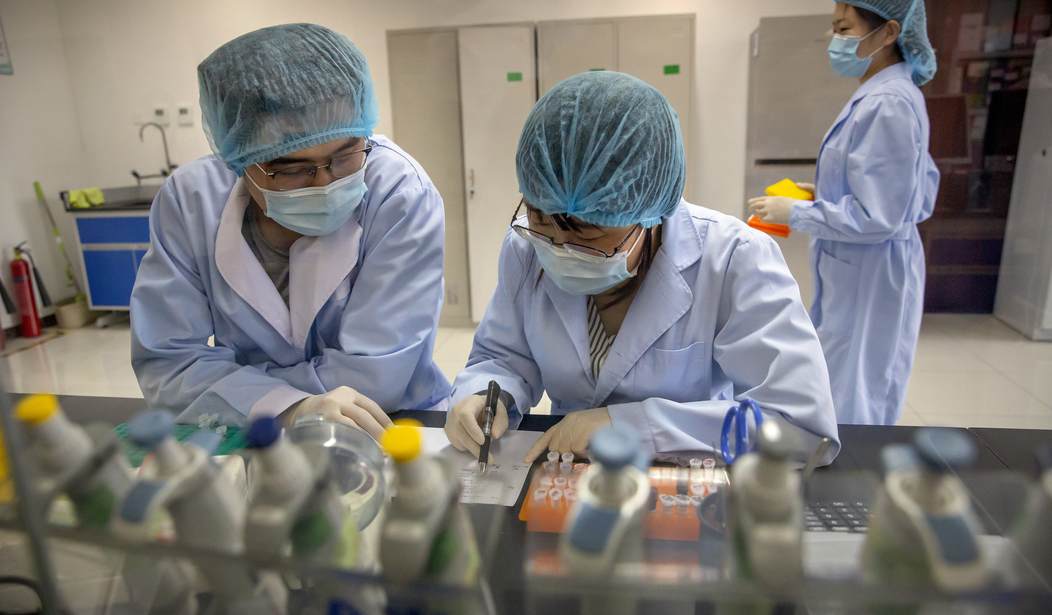When lifesaving drugs run low, hospitals have to choose which patients get a scarce drug, while others go without. Some even die. Historically, medical ethicists have recommended giving the drug to the patient most likely to benefit or using a lottery to give every patient an equal chance.
Not any more. Pennsylvania hospitals are tilting the scale in favor of patients from "disadvantaged areas." If you're middle class, you're toast.
To "redress social injustices," Pennsylvania is applying a "weighted lottery" statewide, to hike the odds that the scarce drug remdesivir for COVID-19 will be given to patients from poor neighborhoods in preference to other patients.
Remdesivir is a medicine that speeds recovery and, according to its maker, Gilead Sciences, increases survival by 62%.
If you can get it. Your ZIP code could literally mean the difference between life and death.
"This is all very new," explains Douglas White, an ethicist at the University of Pittsburgh, who helped devise the weighted lottery.
Some medical ethicists are urging that other states follow suit. South Carolina reports that if remdesivir runs short there, the state will apply preferences like UPMC's lottery, according to Dee Ford, professor at the Medical University of South Carolina who helped design the South Carolina approach.
The public needs to speak out before this deadly scheme comes to their state.
In the past, if many patients needed a scarce drug, deciding who got it involved only their medical conditions. That's consistent with the American Medical Association guidelines -- that the patient most likely to benefit medically from the drug should get it.
It's a far cry from favoring patients from low-income ZIP codes.
Recommended
The Greenwall Foundation, a medical ethics group, advocates "mitigating health disparities" by prioritizing who gets remdesivir and future COVID-19 therapeutics. So do researchers at the University of California, San Francisco.
This isn't just about remdesivir. Giving medical preferences to the economically disadvantaged is gaining steam. The Organ Procurement and Transplantation Network floated a proposal in January to require transplant candidates to provide household income on their applications, as a first step toward increasing the number of transplants offered to patients with low "socioeconomic status." It's provoked considerable controversy from other transplant advocacy groups.
Academics are using the pandemic as a launching pad to push their redistributionist agenda. But it's not what the public believes is morally right. A majority of people say a hospital's goals should be saving the most lives and treating people equally, according to a June 2020 poll.
Many physicians agree. Downstate Medical Center cardiologist Jeffrey Borer says, "a means test in either direction is unethical."
New York has so few COVID-19 hospitalized patients that it recently sent remdesivir to Florida. Texas is reserving its supply for patients not yet on ventilators. Minnesota emphatically rejects socioeconomic preferences.
Most states are not rigging the system -- yet. But it's likely to spread fast if left up to university medical ethicists, who are trying to keep it quiet. Families won't know if their ZIP code had something to do with why Dad died in the ICU.
The Pennsylvania lottery's designers say they were inspired by a weighted lottery for oversubscribed charter schools that gave preferences based on address.
That should be a warning. Preferential admissions have roiled the nation. Preferential treatment in hospitals, where it could determine who survives, would be even more divisive.
On the other hand, it's common sense that when a COVID-19 vaccine becomes available, it should be distributed to disadvantaged neighborhoods first to prevent the most cases. Residents, there are more likely to live in crowded conditions, unable to socially distance, and to work on jobs in mass transit and grocery stores that expose them to the disease.
But caring for hospital patients is a different matter. Equal treatment is the only morally acceptable rule.
Patients need to trust that their caregivers are doing all they can. The ICU is no place for social engineering. Preferential treatment there is frightening. The public needs to stop it now.

























Join the conversation as a VIP Member